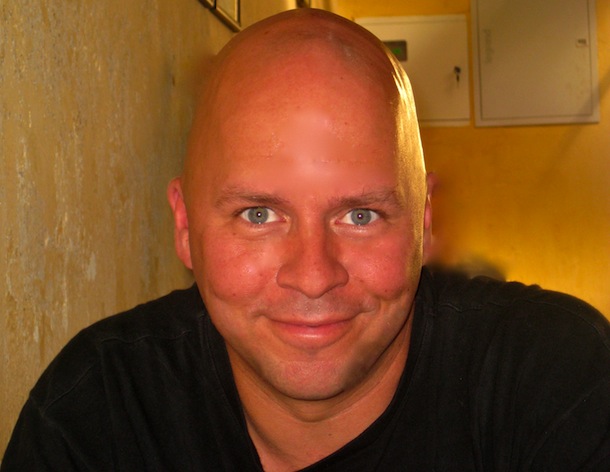
Originally a musician, Derek Sivers created CD Baby in 1998. In 2008, he sold it for $22 million, giving the proceeds to a charitable trust for music education. He is the author of, Anything You Want (a must read), and a frequent speaker at the TED Conference.
This interview was originally posted on SpillstheBeans.com
What time of the day do you work best? Morning? Evening?
DS: Morning! For some reason, ever since I was a little kid, I wake with the most energy of the day, and it slowly declines from there.
Do you spend more time in the office or on the go?
DS: I didn't have any office for the last 5 years, but a few months ago I rented a single private office room, just to have a separate place to go and focus, away from home and family. It's really wonderful. A work-only zone does wonders for your productivity.
So, I prefer working at the office now. I spend 8 focused hours there, then I go home to be present with my family.
What do you love most about what you do?
DS: Learning. It's really the primary reason behind everything I do. Programming, entrepreneuring, writing. The real point is learning, and these are just different methods or justifications for learning.
Is there anything you dislike about what you do or about your industry?
DS: I don't have to do anything I dislike, anymore. But something I dislike about any industry are the people who are only in it for the money, and have no intrinsic interest in doing things for their own sake. It permeates everything they do, and is really depressing: this half-assed approach to doing only whatever it takes to get paid, but never more.
Do you work in silence? Listen to music?
DS: Silence. I'm so into music that I just stop and listen, whenever there's music on. That's the problem with being a musician for so long. I can get lost in the bassline, fascinated with the arrangement, curious about the production. I can't shut it out.
Under what conditions do you best generate ideas?
DS: Forced experimentation. Where you give yourself a challenge like, "What's the opposite of that?" or "What if I did nothing but one aspect of this?" or "In a perfect world, what would happen?"
Are business decisions for love or for money?
DS: For me? Love. The purpose of money is to trade for things that make you happy. So if you can bypass money and get directly to the happy, you've saved a lot of trouble. And it makes others happier, too, when you organize your business around non-monetary things.
Is the customer (client) always right?
DS: Depends if you're doing it for them, or doing it for yourself. It's important to know which one is more important. It's different per-project.
Who did/do you look up to?
DS: These days, my role models are the authors of the books I read. Kevin Kelly, Seth Godin, Daniel Gilbert, Eric Ries, Daniel Pink, William Bernstein, Jonah Lehrer, even Tim Ferriss. These are my heroes. (And luckily, a few of them are my friends.)
If you could say one thing to the younger you, what would it be?
DS: Most people don't know what they're talking about. They move their mouth and say things because they don't want to admit they don't know. Or they think they know, but it's just confabulation and biases. So ignore them unless what they say resonates with some real wisdom inside of you. Assume they're a fool and find out the truth for yourself.
For other interviews with your favorite entrepreneurs visit SpillstheBeans.com
